The Commission for Women, Diocese of Mangalore, Championing Gender Equality hosted a Women’s Day celebration on Sunday under the theme “Supporting a Mission of Empowerment.” Championing Gender Equality This year’s event held special significance as it also marked the Jubilee of Women in the Year of Hope, recognizing the vital role women play in the church, society, and family life.
The event not only honored the contributions of women but also served as a platform to introduce new initiatives aimed at uplifting and empowering women across the diocese. Bishop Saldanha reaffirmed the church’s commitment to gender equality, emphasizing that true empowerment is built on faith, resilience, and collective action.
Understanding the Context: Championing Gender Equality
Before diving into the initiatives, it’s crucial to understand the context. While Mangalore boasts a relatively high literacy rate and a strong presence of women in various professions, deep-seated patriarchal norms still permeate many aspects of life. Women often face discrimination in access to education, employment opportunities, and decision-making roles within families and communities. Issues like domestic violence, limited land ownership, and social stigma surrounding widowhood continue to plague the region.
The Diocese, recognizing these challenges, has taken a proactive approach, moving beyond traditional religious functions to address the pressing social needs of its community. Their initiatives are grounded in the belief that true progress can only be achieved when women are empowered and given equal opportunities to thrive.
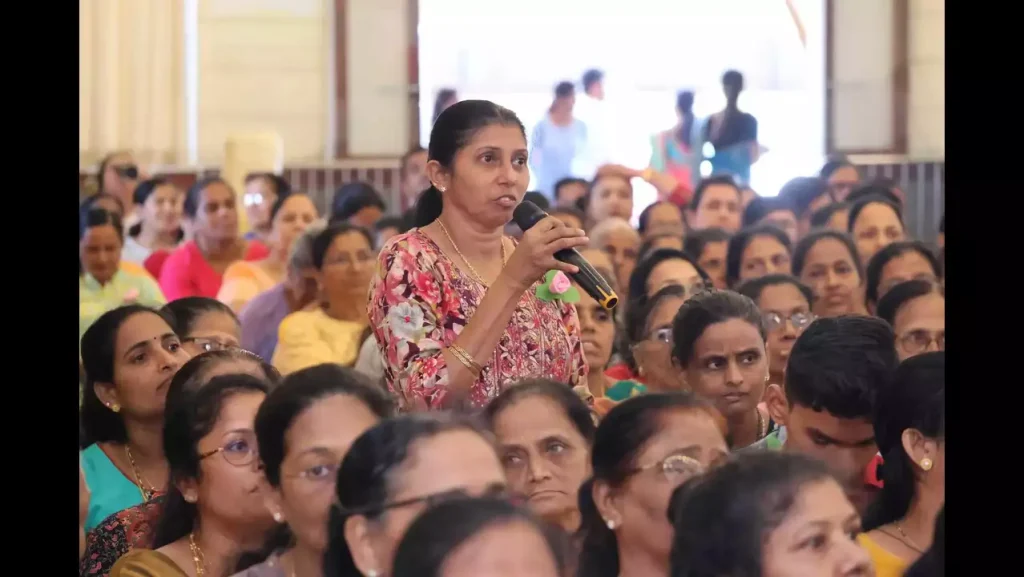
Empowering Women through Self-Help Groups (SHGs)
One of the most impactful initiatives of the Championing Gender Equality Mangalore Diocese is the promotion and support of Self-Help Groups (SHGs) for women. These groups, typically comprising 10-20 women from the same neighborhood, provide a platform for collective savings, micro-credit, and skill development.
Financial Independence: SHGs enable women to pool their small savings, creating a fund that can be used for lending among members. This access to micro-credit empowers women to start small businesses, invest in agriculture, or meet emergency needs, reducing their dependence on exploitative moneylenders. They learn to manage money, keep records and build financial skills.
Skill Development and Entrepreneurship: The Diocese facilitates training programs on various income-generating activities, such as tailoring, handicrafts, food processing, and agriculture. These programs equip women with the skills they need to Championing Gender Equality become financially independent.
Social Empowerment: SHGs also serve as a platform for women to discuss their problems, share experiences, and build solidarity. They learn about their rights, access information on government schemes, and collectively address issues like domestic violence and social discrimination. They have a voice Championing Gender Equality.
Leadership Development: The structure of SHGs encourages women to take on leadership roles, fostering confidence and decision-making skills. They learn how to run meetings, manage finances, and represent their group in community forums.
Promoting Gender-Sensitive Education and Awareness
The Championing Gender Equality Diocese recognizes that education is a powerful tool for social change. However, traditional education systems often perpetuate gender stereotypes and fail to address the specific needs of girls. To counter this, the Diocese has implemented several initiatives aimed at promoting gender-sensitive education and awareness.
Awareness Campaigns: The Diocese conducts regular awareness campaigns in schools and communities, focusing on topics like gender equality, women’s rights, and the importance of girls’ education. These campaigns use various methods, including street plays, workshops, and community meetings, to reach a wide audience.
Teacher Training: The Diocese organizes training programs for teachers, equipping them with the knowledge and skills to create a gender-sensitive learning environment. Teachers are encouraged to use inclusive language, Championing Gender Equality challenge gender stereotypes, and provide equal opportunities for all students.
Scholarships and Support for Girls: To address the financial barriers to girls’ education, the Diocese provides scholarships and financial assistance to deserving students. They also offer support to girls from marginalized communities, ensuring they have access to quality education.
Vocational Training for Young Women: The Diocese has established vocational training centers that offer courses in fields like computer skills, nursing, and hospitality. These programs provide young women with the skills they need to secure well-paying jobs and become financially independent.
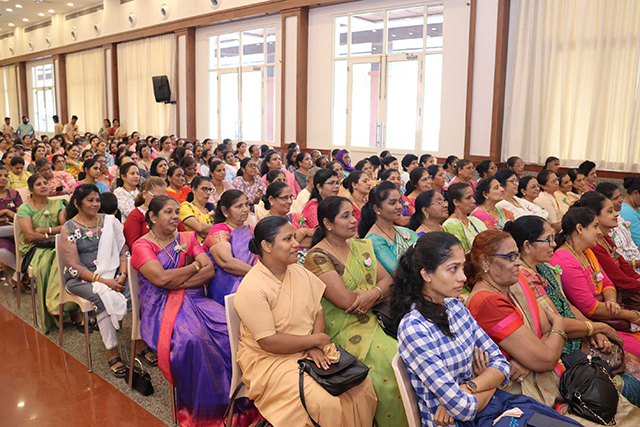
Advocating for Women’s Rights and Addressing Social Issues
Legal Aid and Counseling: The Diocese provides legal aid and counseling services to women who are victims of domestic violence, sexual harassment, and other forms of abuse. They help women understand their rights and access legal remedies.
Community Mobilization: The Diocese works with local communities to raise awareness about social issues like dowry, child marriage, and gender-based violence. They organize community meetings, workshops, and rallies to mobilize public support for women’s rights.
Networking and Collaboration: The Diocese collaborates with government agencies, NGOs, and other organizations to address social issues and advocate for policy changes. They work together to create a more supportive environment for women.
Addressing Widowhood: In many rural areas, widows face severe social stigma and economic hardship. The Diocese has initiated programs to support widows, providing them with financial assistance, counseling, and skill development opportunities. They also work to challenge the social norms that perpetuate discrimination against widows.
Environmental Concerns: The Diocese also understands that women are often the first to feel the effects of environmental degradation. Therefore, they encourage women to be involved in environmental conservation and sustainable agriculture.By advocating for women’s rights and addressing social issues, the Diocese is creating a more just and equitable society. They are challenging the power structures that perpetuate inequality and working to create a world where women can live with dignity and respect.
The Impact and the Road Ahead
The initiatives of the Mangalore Diocese have had a significant impact on the lives of women in the region.They have empowered women to become financially independent, gain access to education, and assert their rights Championing Gender Equality.
However, much work remains to be done.Sustainability: Ensuring the long-term sustainability of the SHGs and other initiatives is crucial. This requires strengthening the capacity of local communities to manage and maintain these programs.
Reaching Marginalized Communities: Efforts must be made to reach women in the most marginalized communities, including those living in remote rural areas and those belonging to minority groups.
Addressing Deep-Rooted Norms: Challenging the deep-rooted patriarchal norms that perpetuate gender inequality requires a sustained and multi-faceted approach. This includes working with men and boys to promote gender equality.
Policy Advocacy: Continued advocacy for policy changes that promote women’s rights and gender equality is essential Championing Gender Equality.

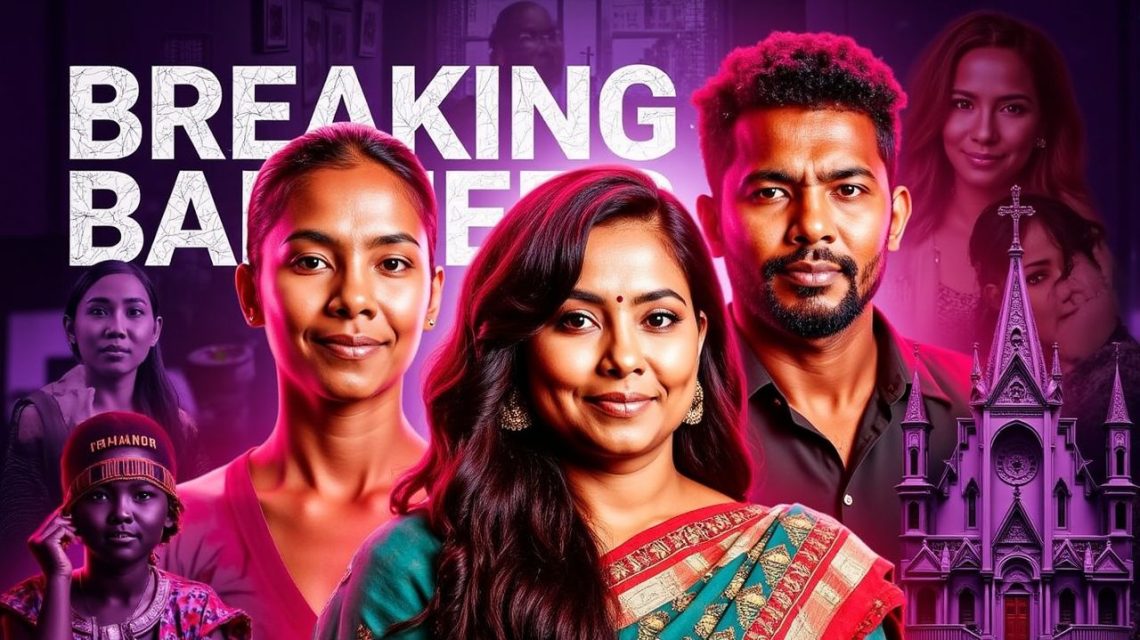

 5 Powerful Reasons Gender Equality Is the Key to Climate Justice – And What Happens If We Ignore It.
5 Powerful Reasons Gender Equality Is the Key to Climate Justice – And What Happens If We Ignore It.  11th Session : Putting Children First Advancing Zero Hunger, Health, and Gender Equality in Africa’s Future
11th Session : Putting Children First Advancing Zero Hunger, Health, and Gender Equality in Africa’s Future 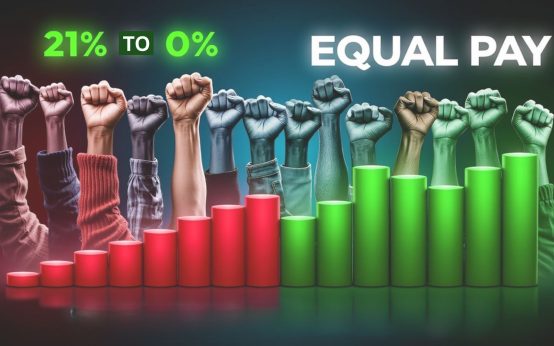 From 21% to Zero: Breaking Barriers, Celebrating Progress, and Achieving Gender-Equal Pay
From 21% to Zero: Breaking Barriers, Celebrating Progress, and Achieving Gender-Equal Pay 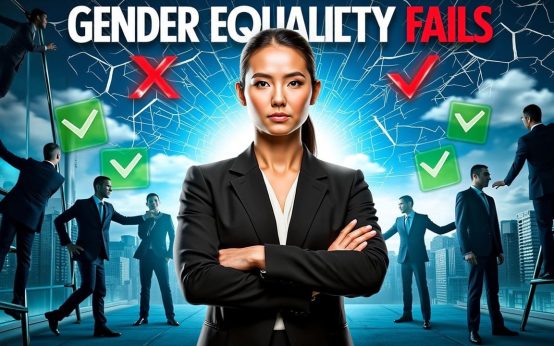 Why Gender Equality Efforts Fail: 5 Hidden Challenges & 3 Empowering Solutions to Drive Real Change.
Why Gender Equality Efforts Fail: 5 Hidden Challenges & 3 Empowering Solutions to Drive Real Change.  Breaking Barriers: 5 Powerful UNESCO Strategies to Overcome Media Inequality & Champion Gender Equity for Beijing+30
Breaking Barriers: 5 Powerful UNESCO Strategies to Overcome Media Inequality & Champion Gender Equity for Beijing+30 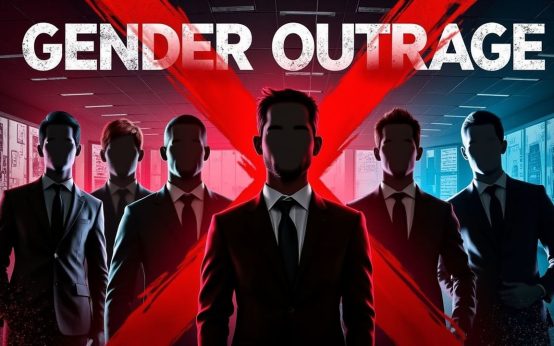 Merz’s All-Male Team Sparks Outrage Over Gender Equality.
Merz’s All-Male Team Sparks Outrage Over Gender Equality.
Good!
wonderful!
wonderful!